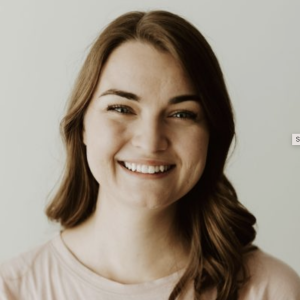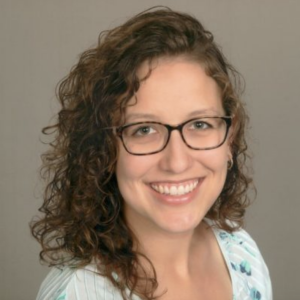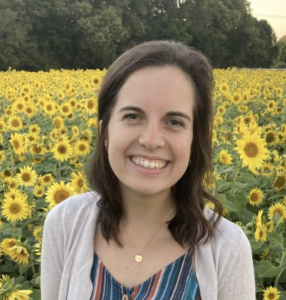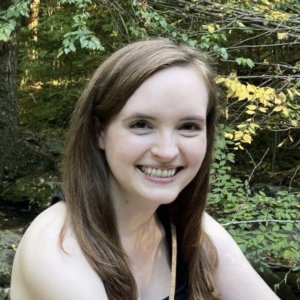September 23, 2023 // Diocese
Exciting Innovations ‘Bearing Fruit’ in the Natural Family Planning World
Complicated. Unrealistic. Ineffective.
These are words sometimes used to describe natural family planning (NFP). Or, at least, they used to be. Now more than ever, NFP is effective, accessible, and affordable.
The FEMM method (Fertility Education and Medical Management), along with other innovations such as the Mira monitor, are new on the scene and offer fresh options for couples hoping to follow God’s plan for marriage and fertility. But married couples are not the only ones who will find these new developments useful. Women often report being misunderstood and dismissed when voicing their concerns about their reproductive health. The increase in popularity of fertility awareness-based methods of natural family planning have helped women in receiving the care they need.
Meet some of the newest instructors of fertility awareness-based methods (FABMs) of family planning in the Diocese of Fort Wayne-South Bend. Currently in the South Bend-Elkhart area, there are four FEMM-certified instructors who are imparting their knowledge in various ways. Ryenn Andreassi manages the Mishawaka location of Women’s Care Center. Dr. Sarah Kruis brings her knowledge to her clinical practice as a chiropractor with her focus on fertility and prenatal patients. Kristin Soukup is passionate about working with women experiencing symptoms of underlying reproductive health issues. Midwife Lauren Cox wanted to integrate FABM instruction into her practice, Sacred Journey Midwifery, which serves women in the diocese with her unique holistic approach.
Cox has even had the privilege of beginning her relationship with a patient by treating them for fertility or hormonal complications and has helped them “find answers to be able to conceive and then went on to be part of their delivery.” She reflected: “I held the conviction that there had to be more to women’s health than handing women a pill that evidence has now shown is associated with countless side effects and does not actually treat the problem. I wanted to be a provider that considered the physiology of hormonal dysfunction and provide treatment that would lead to healing for the whole person. It has been exciting to see how fellow colleagues have also become more interested in this kind of care and are providing it in our area, as well.” Cox concluded, “I have watched so many women come out feeling heard by a provider, validated in what they are feeling, and empowered to know they have the resources to heal by really focusing on their health and well-being as a whole.”
Soukup, who recently received her certification as a FEMM instructor, reflected on her desire to become a teacher: “I wanted a method that would provide good education to any woman, be accessible, and be applicable not only for avoiding or achieving pregnancy but also helpful in identifying and treating underlying health concerns, which FEMM has the ability to do through their Medical Management providers,” she said. “Working with individual women, the biggest impact I have seen is an appreciation and greater understanding of their bodies, their cycles, and the ability to recognize what is healthy and seek medical support as needed. They have been very grateful for the information that they have not learned elsewhere, and for validation when something about their cycles has been difficult.”
Lisa Everett, Director for Marriage and Family Ministry for the diocese, pointed out that “the fact that FEMM is a comprehensive women’s health and wellness program for optimal reproductive health can make it attractive to those who might not otherwise be interested in what the Church teaches about sexuality and fertility.”
All methods have their downsides, and the instructors will attest that FEMM is no different. “FEMM relies on the LH (lutenizing hormone) biomarker, and 1 in 5 women will not be able to get a positive reading,” Andreassi explained.
Soukup said she believes time can be an obstacle. “This is something that can take time to learn and become confident with.” But no one can say that this method is unaffordable. Women will spend mere dollars per month on test strips, with a free app and no requirement for a monitor.
These innovations are not just for those blessed with ready access to doctors, pharmacies, and health care in developed countries, either. Now these methods are also being taught to women in third world countries who have been unserved by a push for barrier methods or sterilization. According to Andreassi, “Doctors in third world countries use FEMM as a holistic/functional means of treating gynecological patients and are often working with FEMM Medical Management doctors to treat any disorders they may have.”
New developments in the technology of FABMs also provide much-needed clarity and specific instruction for two populations that have historically been let down by other NFP methods – postpartum and perimenopausal women, according to Dr. Chris Stroud and Dr. Tom McGovern from the locally produced podcast “Doctor, Doctor.”
With these new innovations, couples have more options and better chances, both with achieving and avoiding pregnancy, and single women are being offered more methods to better their health.
As exciting as these new developments are, there is one piece of the NFP technology puzzle that has not been perfected yet: the progesterone test. Stroud said that with the genesis of a home urine test for progesterone, couples could know with near certainty that ovulation has occurred and, therefore, be even more confident in identifying the end of the fertile window in a given cycle.
All of this knowledge about the newest innovations in natural family planning is also important for couples preparing for marriage. Everett shared that a two-hour online NFP Overview Session is now required for all engaged couples. Each session covers the physiology of male and female fertility, the science behind fertility awareness-based methods of family planning, an overview of the major methods of NFP presented by instructors in each method, the “theology of the body” on which NFP is based, what the Catholic Church means by “responsible parenthood,” what NFP looks like in the (real) life of a married couple, and all of the options for learning NFP both online and in-person in our diocese.
“We encourage the engaged couples to talk about what they have seen presented on the NFP overview session and decide which NFP method they want to learn, and then sign up for either in-person or online instruction via our NFP webpage at diocesefwsb.org/nfp,” Everett said. “We also offer these NFP overview sessions in Spanish and encourage couples to explore our Spanish NFP webpage at diocesefwsb.org/pfn. The fact that there are also online options for instruction for all the methods makes it easier than ever for engaged and married couples to learn a method of NFP and experience how it can foster their physical, emotional, and spiritual health.”
The best news. Delivered to your inbox.
Subscribe to our mailing list today.










